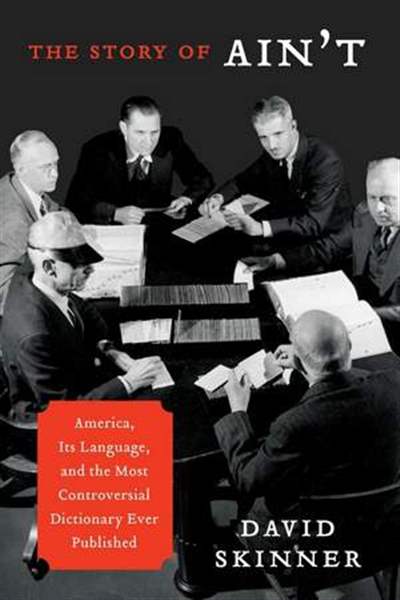
History of dictionary is surprisingly entertaining
10/21/2012
The Story of Ain't: America, Its language, and the Most Controversial Dictionary ever Published, by David Skinner (Harper, 368 pages, $27)

The Story of Ain't: America, Its language, and the Most Controversial Dictionary ever Published, by David Skinner (Harper, 368 pages, $27)
David Skinner’s The Story of Ain’t is an immensely entertaining history of a dictionary whose appearance in 1961 sent critics over the edge. “Literary anarchy,” "sabotage,” "disaster,” "calamity” — these were just a few of the epithets hurled at Webster’s Third New International Dictionary. More than half a century later, it may be hard to understand how mere printed matter could get folks so worked up. But Skinner, the editor of Humanities magazine, manages to transform this somewhat arcane lexicographical dispute into a real page turner.
The story begins in 1934 with a black-tie dinner celebrating the publication of Webster’s Second, a 17-pound tome crammed with all the information a well-bred person of that time might need to know. Oddly, that included lists of dog breeds and biographies of Roman orators.
By 1961, of course, that wasn’t nearly enough. The country had endured a depression and world war and witnessed the rise of television and movies, the aerospace industry, interstate highway system, civil rights movement, baby boom generation, rock ‘n’ roll, and more.
That meant lots of new words had to be in the updated edition, including ballistic missile, desegregation, housing development, Little League, McCarthyism, ponytail, and Zen. And when it came to usage, Webster’s Third wasn’t content to only quote from the likes of Dryden and Shakespeare — in came pithy snippets from movie stars, Mickey Spillane, even a former madam.
To make room for the new, Editor-in-Chief Philip Gove decided that a good chunk of the old had to go, including encyclopedic material that arguably didn’t belong there in the first place.
What proved most controversial, however, was his overarching editorial philosophy that the best a dictionary could do was to faithfully record the language as it was spoken.
If that meant ignoring the sometimes archaic, elitist, and moralizing prescriptions of the grammar cops, well then, so be it.
Gove’s position, reflecting decades of well-established linguistic research, outraged the so-called prescriptivists, who thought Webster’s Third represented permissiveness run amok.
Skinner ably and amusingly captures the hysterical tone of the bitter public quarrel while suggesting that it foreshadowed many of the arguments over values and standards that we’re still fighting about today.